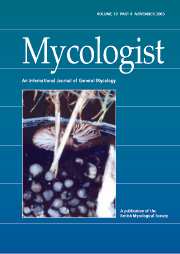Article contents
How much are your children taught about fungi in school?
Published online by Cambridge University Press: 03 January 2006
Abstract
Although fungi are fundamentally important in our every day lives, the Kingdom is largely ignored by the National Curriculum in the United Kingdom. Consequently, children are missing out on being taught about a crucially important group of organisms. This paper aims to show the deficiencies in the curriculum specifications in UK primary and secondary schools, and describes a range of British Mycological Society learning resources designed to remedy the situation. These ready-made (and classroom-tested) lessons and workshop sessions cover a range of fungal topics from cell structure and function, through biotechnology to health topics and plant growth and disease. The resources include games and activities, aiming to increase knowledge and awareness of fungi in an active, entertaining way and thereby maintain interest in biology as a science.
- Type
- Original Article
- Information
- Copyright
- 2005 The British Mycological Society
- 2
- Cited by


